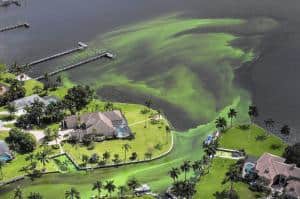Scientists, Wildlife officials, and the Florida Wildlife Federation urge to move manatees back to the endangered species list. Improving water
Scientists, Wildlife officials, and the Florida Wildlife Federation urge to move manatees back to the endangered species list.
TALLAHASSEE, FLORIDA, UNITED STATES, October 25, 2021 /EINPresswire.com/ — Four years ago, manatees were declared no longer endangered. Now they are dying at a record pace. Between January and June 2021, 833 West Indian manatees died of starvation, the highest number ever recorded in the state during a six-month period.
Ongoing water quality problems in Florida’s estuaries, one of the most biologically diverse ecosystems on the planet, have led to a widespread loss of seagrass, the manatee’s main food source. Although manatees also face grave threats from toxic blooms of red tide, habitat loss, and boat strikes, the majority of manatee deaths are now related to starvation.
For the past several years, ongoing nutrient pollution associated with fertilizers, neglected septic tanks and municipal sewer lines have triggered harmful algae blooms that cloud Florida’s historically crystal-clear estuaries, preventing sunlight from reaching the seagrass beneath the surface. As a result, since 2009 the Indian River Lagoon has lost 58% of its seagrass and since 2012, Tampa Bay has lost 13%, while between 2018 and 2020, Sarasota Bay lost 18%.
For manatees, food scarcity means that they face a crucial choice when a cold snap occurs: whether to stay and potentially starve or forage elsewhere and freeze.
“The water quality decline didn’t happen overnight. The lack of water quality-policy enforcement and minimal environmental protection have resulted in the conditions we see today,” said Preston Robertson, President of the Florida Wildlife Federation. “Improving water quality in Florida doesn’t only mean creating a better environment for manatees and wildlife in general, but also a better quality of life for Floridians as well,” he added.
The calamity comes four years after the U.S. Fish and Wildlife Service (USFWS) downlisted the animal from endangered to threatened. The Florida Wildlife Federation believes the downlisting not only was premature but neglected scientifically documented warning signs at the time that manatees were in trouble, leaving the animals vulnerable.
About the importance of listing manatees as endangered, Sarah Gledhill, Regional Policy Director at the Florida Wildlife Federation, states: “According to Florida’s Fish and Wildlife Conservation Commission, there have been 974 manatee deaths so far this year, more than double the number of annual deaths that happened prior to the delisting decision. These deaths are alarming and sadly we anticipate another tragic winter. The manatees are running out of time unless we give them the protections they need sooner rather than later.” The Federation is now asking the public to support the uplisting of the manatee by filling out this form on their website.
Florida Wildlife Federation fully supports legislation aimed at restoring the manatee’s endangered status as well as the bipartisan Marine Mammal Research and Response Act of 2021. The Act would allocate $42 million over six years to support on-going efforts by local governments and non-profit organizations to rescue and rehabilitate sick and injured marine mammals and to mitigate what is causing the mammals to experience high mortality.
Sarah Gledhill
Florida Wildlife Federation
+1 904-347-6490
sgledhill@fwfonline.org
Visit us on social media:
Facebook
Twitter
LinkedIn
![]()


